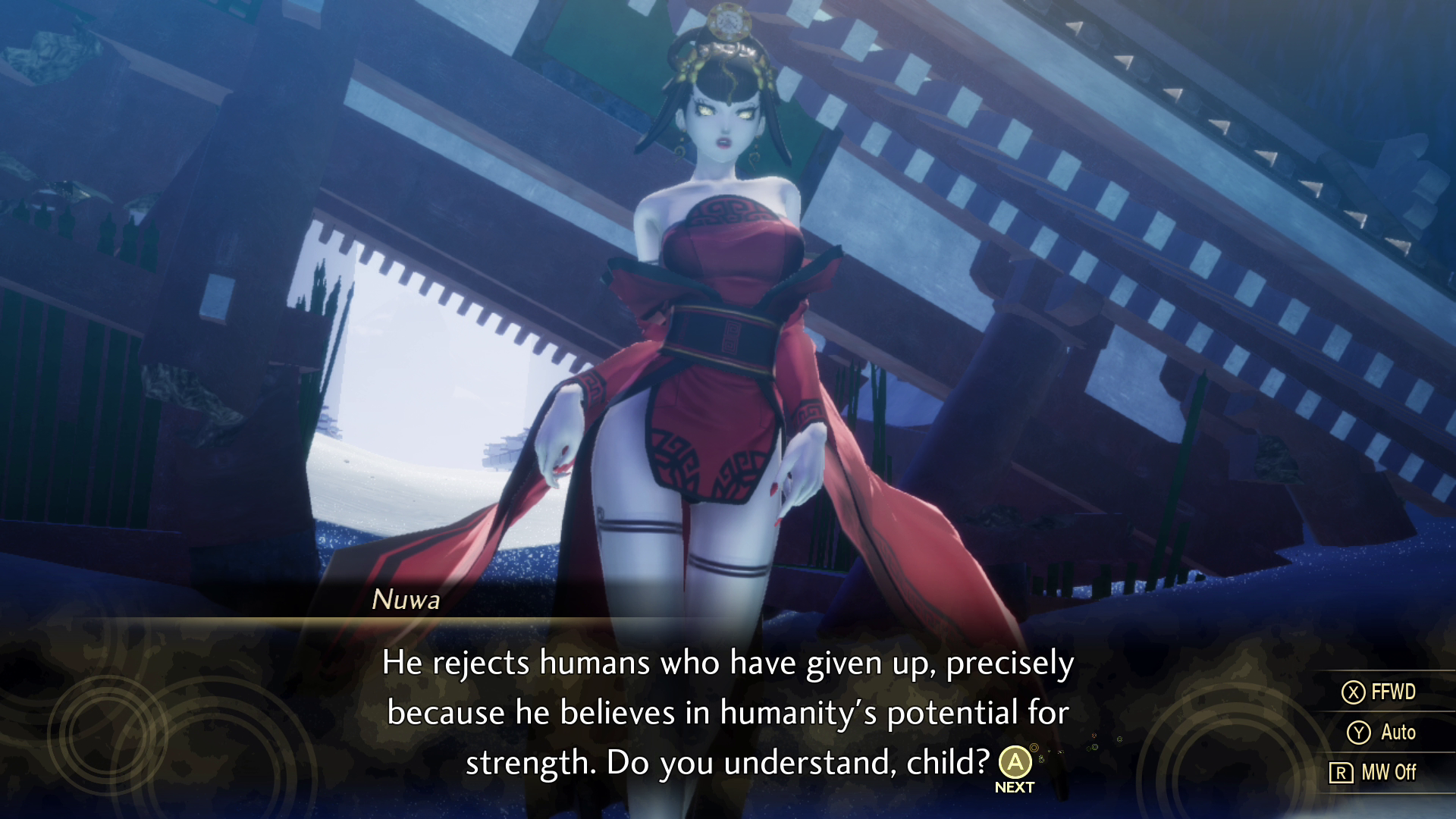Shin Megami Tensei (Or more particularly the upcoming Shin Megami Tensei V) has garnered a considerable amount of spotlight from reviewers and fans recently. The reason for this enthusiasm is owed to the fact that, while many JRPGs revolve around overcoming some great ordeal or a ruling tyrannical system, the Megaten series is more clear with its philosophical inspirations, stemming from the works of the German philosopher: Friedrich Nietzsche, and his work of philosophical fiction: Thus Spoke Zarathustra.
The Novel opens with the titular hero Zarathustra (Who acts as a primary design concept for many protagonists in the series, especially Nocturne and the upcoming SMTV). The Hero is brimming with wisdom and love, and wants to teach humanity about the real meaning of what it means to be human, which is someone who is free from all the prejudices and moralities of human society, and one who creates their own values and purposes. Of course, its never really easy to influence or change society, or the core of man.
The bulk of the novel is made up on individual lessons that cover most of the general themes of Nietzsche’s mature philosophy, and acts as the primary vehicle for the SMT games and its divided routes. The concepts value individual struggles and hardships, and is harshly critical of all kinds of mass movements, including religion, nationalism, democracy, or any other mean of escape for those who are not strong enough to conquer themselves.
Many titles in the Shin Megami Tensei series focus on a similar plot of invading man’s respite and idealism, but lean more towards the extraordinary. The protagonists all need to survive alone in a new world ruled over by tyrannical deities, and the main goal is to fight against an omnipotent presence, who challenges the morality of the remaining humans and forces them to reconsider what it means to stand as individuals in a new world devoid of reason, and which of them will rise against everything and transcend their own humanity, becoming what Nietzsche calls the Übermensch or the Beyond Man.
The Death of God

In Shin Megami Tensei, many elements of Gnosticism, Mythologies and Religions are often incorporated inside a Science fiction or a fantastical setting with dystopian elements, and all of them are brought together and unified through the use of philosophical concepts, enabling a blending of concepts and aesthetics that might normally clash, because the goal is to present a thought provoking experience that clashes with system used for self evaluation, and the correct interpretation of how should humanity survive is left to individual judgement from the opposing remaining factions and characters of each story.
A concept commonly known from Nietzsche’s works (and is referenced in the SMTV trailer) is the “death of God“. This expression is commonly used in the series to portray that the idea of a collective belief system of any kind can no longer provide values. There is no one else left in the current world, you are very prone to nihilism and therefore the new situation calls for a crucial paradigm shift as a reevaluation of values. Your friends will often have varying ideas of how to exercise personal dominance, and will usually collide with you and your ideals in thrilling battles to decide the fate of all humanity.
Creation of New Values

Zarathustra or his parallels in SMT games present Übermensch as the creator of new values to banish nihilism. You go on a journey to create a new world and new justifications for certain actions. How you do that is dependent on the many questions you will have to answer according to the values you hold dear, and each game feels like a personality screening test, with the aim of leaving the ultimate ending to players through morally ambiguous questions that allocate certain hidden points to each available route.
The true route in each SMT game is often symbolized as a neutral route where you are only motivated by a love for this world and for life. Most wrong paths opt for a survival of the fittest style (the demons side), or exerting some force of religious doctrine or dogma upon humans (the angels side), but all of this collide with the version of the Übermensch Nietzsche has envisioned. For him, the Übermensch was a way of life as opposed to a system of values, and that’s how the protagonist of Shin Megami Tensei strives to be.
The Divine Comedy

With each recurring entry in the series, the protagonist is immediately thrown in a world where stillness and solitude are the norm, and many demons and angels, in addition to other mythological figures and deities from various religions and folklore tales will act as your confidents and aid in battles. In a manner very similar to the Divine Comedy written by Dante Algieri, the protagonist will be able to descend into hell and then eventually move back to the surface and rise to heaven and meet the tyrannical god, whose figure changes depending on the inspiration and the theme of the current entry.
This corresponds to Dante’s journey in the divine comedy traveling down to hell, only to travel up to purgatory, and end up in heaven. You could say that the divine comedy paves the way for the overall progression of each game in the series, and the visual design of the final locations where you end up after defining your moral standing. Multiple metaphors about spiritual growth and Jungian elements could also be observed, since Jung depicts god and the devil as archetypes of unity and differentiation, and explains the individual as a person who practices proper balances between these influences of radical selfishness or intense unity.
The Politics of Alignments

This article is intend only as a brief introduction to the world of Megaten, and not an extensive thread of its inspirations and themes. You could say that all of this is just scratching the surface of what this deep world has to offer. The Alignment of each route you could take carry more nuance than just the broad terms or eternal good, evil or neutrality, and there are various different interpretations of each route across all serious entries so there are no two similar stories, despite having a similar overall structure.
Law routes try to promote peace and happiness on a large scale, but is willing to override self determination to do that through Utilitarianism, Stoicism and Collectivism, among many other ethical theories. Chaos seeks to crate a world where the strong are the only happy ones, in a manner similar to social Darwinism, Militarism and Anarcho-Monarchism. Neutrality is in between, making use of both ways to promote happiness and self determination and various preaches for idealism, humanism and existentialism.
In short, Any entry Shin Megami Tensei is a life changing experience on so many levels, and made with the outmost care as well. Not only does each setting and the prominent philosophical values feel totally unique and different, but the gameplay is very addicting and time consuming. No gamer should miss the release of Shin Megami Tensei V on Nintendo Switch when its due on 12 November this year. as it’s surely bound to elevate the series to greater heights, and maybe it will be your next favorite game of all time.
